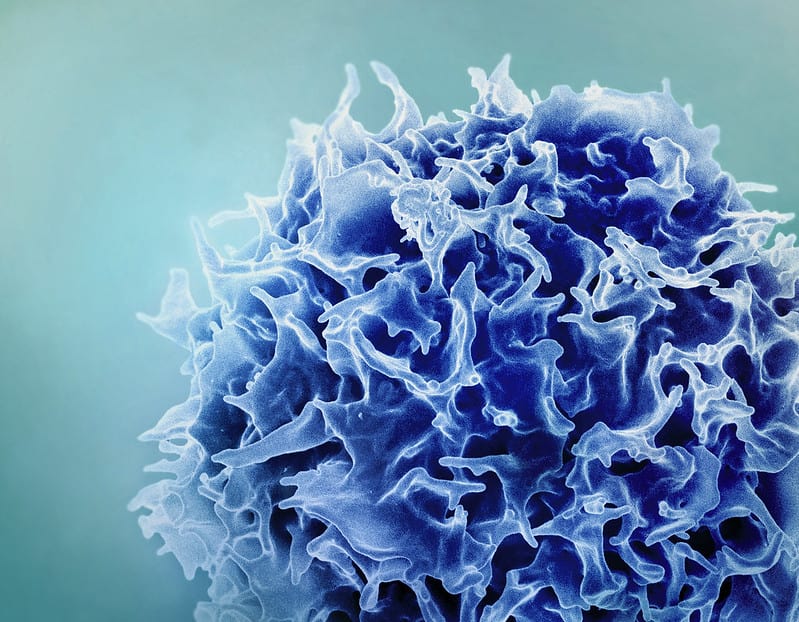Reverse vaccine could treat MS and other autoimmune diseases
 Image credits: NIAID.
Image credits: NIAID.
In a typical vaccine, the body is taught to recognize a pathogen and fight it. The new "reverse vaccine" does the opposite of that: it removes the immune system's memory of a molecule. Normally, that's not what you want to do at all. But if you're suffering from an autoimmune disease, that could be exactly what you need.
In autoimmune diseases like multiple sclerosis (MS), type I diabetes, or rheumatoid arthritis, the body's immune system generally overreacts to something. The general approach to treatment involves getting the body to stop overreacting or limit the damage.
Previous research has shown that this approach could be used to prevent diseases like MS. But the new study shows that even when the disease has progressed, it can be treated with this approach.
“In the past, we showed that we could use this approach to prevent autoimmunity,” said Jeffrey Hubbell, the Eugene Bell Professor in Tissue Engineering and lead author of the new paper. “But what is so exciting about this work is that we have shown that we can treat diseases like multiple sclerosis after there is already ongoing inflammation, which is more useful in a real-world context.”
The work starts with T cells. T cells are usually the body's best line of defense against pathogens. When T-cells remember a pathogen, they can keep you immune to infection in the future. But T-cells can also make mistakes. Specifically, they can misrecognize healthy cells in the body as pathogens. In people with MS, for instance, T-cells start attacking myelin, the protective coating around nerves.
But the body's immune response is complex. For instance, there is a mechanism called peripheral immune tolerance that ensures immune reactions don't occur in response to every damaged cell in the body. This process is carried out in the liver and researchers have been studying it for years. Recently, they figured out that tagging molecules with a sugar known as N-acetylgalactosamine (pGal) could mimic the process. Basically, pGal can convince T cells to tolerate cells.
“The idea is that we can attach any molecule we want to pGal and it will teach the immune system to tolerate it,” explained Hubbell. “Rather than rev up immunity as with a vaccine, we can tamp it down in a very specific way with an inverse vaccine.”
In the new study, the team linked pGal to myelin proteins in the bodies of animals suffering from MS. It worked — the immune system stopped attacking myelin, essentially allowing the nerves to function correctly and reversing symptoms.
But the approach hasn't only been tested on animals. Initial phase I safety trials of a therapy based on this technology have been carried out in people with celiac disease, although more research is required to ensure that the treatment is effective. Another phase I safety trial is underway for people suffering from MS.
But the prospect of such a treatment is definitely exciting. Existing drugs typically shut down the patients' immune systems. But this also makes them more predisposed to some infections. If confirmed, the new approach with the reverse vaccine should cause far less problems.
“These treatments can be very effective, but you’re also blocking the immune responses necessary to fight off infections and so there are a lot of side effects,” said Hubbell. “If we could treat patients with an inverse vaccine instead, it could be much more specific and lead to fewer side effects.”
“There are no clinically approved inverse vaccines yet, but we’re incredibly excited about moving this technology forward,” Hubbell concludes.









